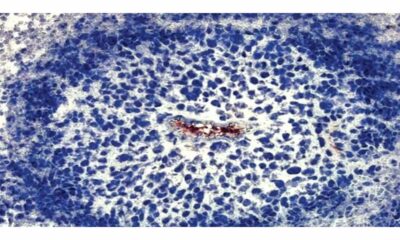USC’s Keck Medicine is conducting a new research to see if immunotherapy administered at home is equally effective as in a hospital. The treatment goal of this trial is non-small cell lung cancer. The body uses immunotherapy to help fight against malignant cells. Usually, a vein at a hospital is used to administer it.
The trial’s objective is to ascertain whether a nurse can safely give subcutaneous atezolizumab injections at home, a treatment for some types of lung cancer. Patients would also receive wearable trackers for telemedicine visits and remote monitoring. Future home-based cancer care may be made easier by this trial.
As the lead investigator of the clinical trial and a medical oncologist with Keck Medicine who specializes in lung cancer and is affiliated with the USC Norris Comprehensive Cancer Center, Jorge Nieva, MD, stated, “We hypothesize that this method of drug delivery can also be successful for cancer patients. Many types of drugs are now being delivered subcutaneously at home for several conditions.” Furthermore, we’ve discovered that doctors have the digital resources necessary to deliver top-notch remote treatment to patients since COVID-19.
Eighty-one percent of lung cancer cases in the United States are non-small cell lung cancer, which is the second most frequent disease in the world and the main cause of cancer-related deaths globally. Immunotherapy has recently received approval to treat a wide range of malignancies, either by itself or in conjunction with radiation or chemotherapy.
Potential benefits include reducing travel time and energy when administering immunotherapy in patients’ homes rather than hospitals. Patients who are really sick and would feel more comfortable in their usual surroundings would benefit the most from this.
Those who live in remote places or have limited access to transportation may find therapy more accessible as a result of this development. Furthermore, there are more benefits to giving the medication subcutaneously rather than intravenously.
Nieva asserts that subcutaneous patient care is more effective, safe, and comfortable than intravenous (IV) treatment, which can lead to complications or infection. They looked into at-home cancer care because a patient avoided the hospital during the COVID-19 outbreak, fearing they would get infected. Later on, the patient passed away. Nieva turned into a supporter of changing the manner that cancer treatment is delivered.
Atezolizumab, the medication under test, enhances the body’s defenses against cancer cells. For advanced lung cancer in 2016 and early-stage non-small cell lung cancer in 2021, the FDA gave its approval. For a period of one to two years, a visiting nurse will provide at-home treatments to 37 eligible patients with non-small cell lung cancer every three weeks.
Researchers working under Nieva’s leadership will use digital tools to remotely monitor patients’ health indicators during telehealth visits. The goal of the study is to assess the feasibility of at-home treatment, patient compliance, and satisfaction with remote care.
Nieva thinks that the trial will benefit people with lung cancer that is not small cell. By delivering healthcare to patients instead of the other way around, access to care can be increased and healthcare disparities may be addressed. If the study proves that immunotherapy is safe and effective for treating lung cancer, it could pave the way for at-home cancer treatments.

 Diabetology2 weeks ago
Diabetology2 weeks ago
 Diabetology2 weeks ago
Diabetology2 weeks ago
 Diabetology1 week ago
Diabetology1 week ago
 Diabetology1 week ago
Diabetology1 week ago
 Diabetology4 hours ago
Diabetology4 hours ago















